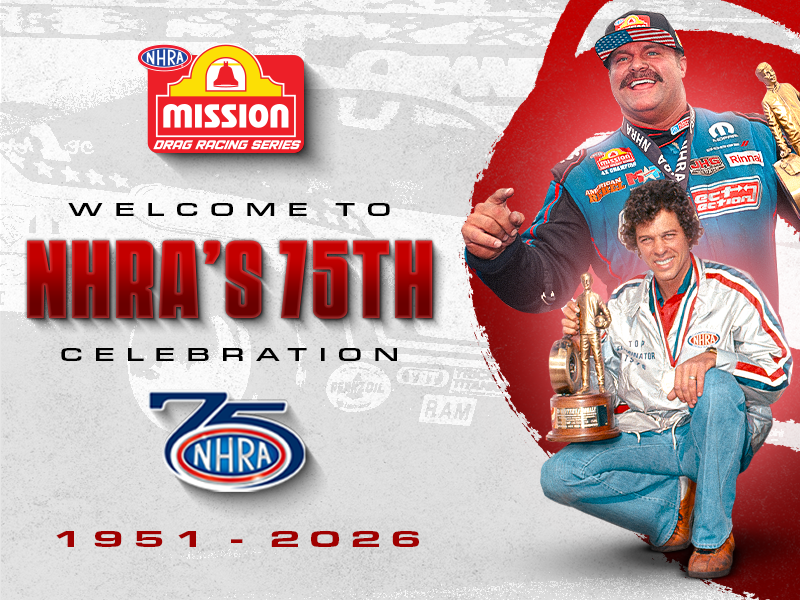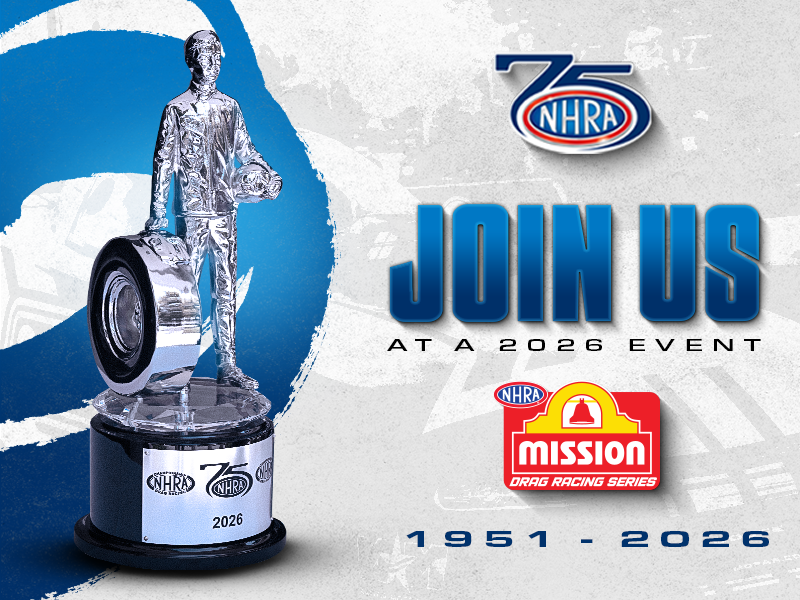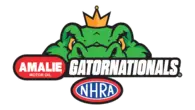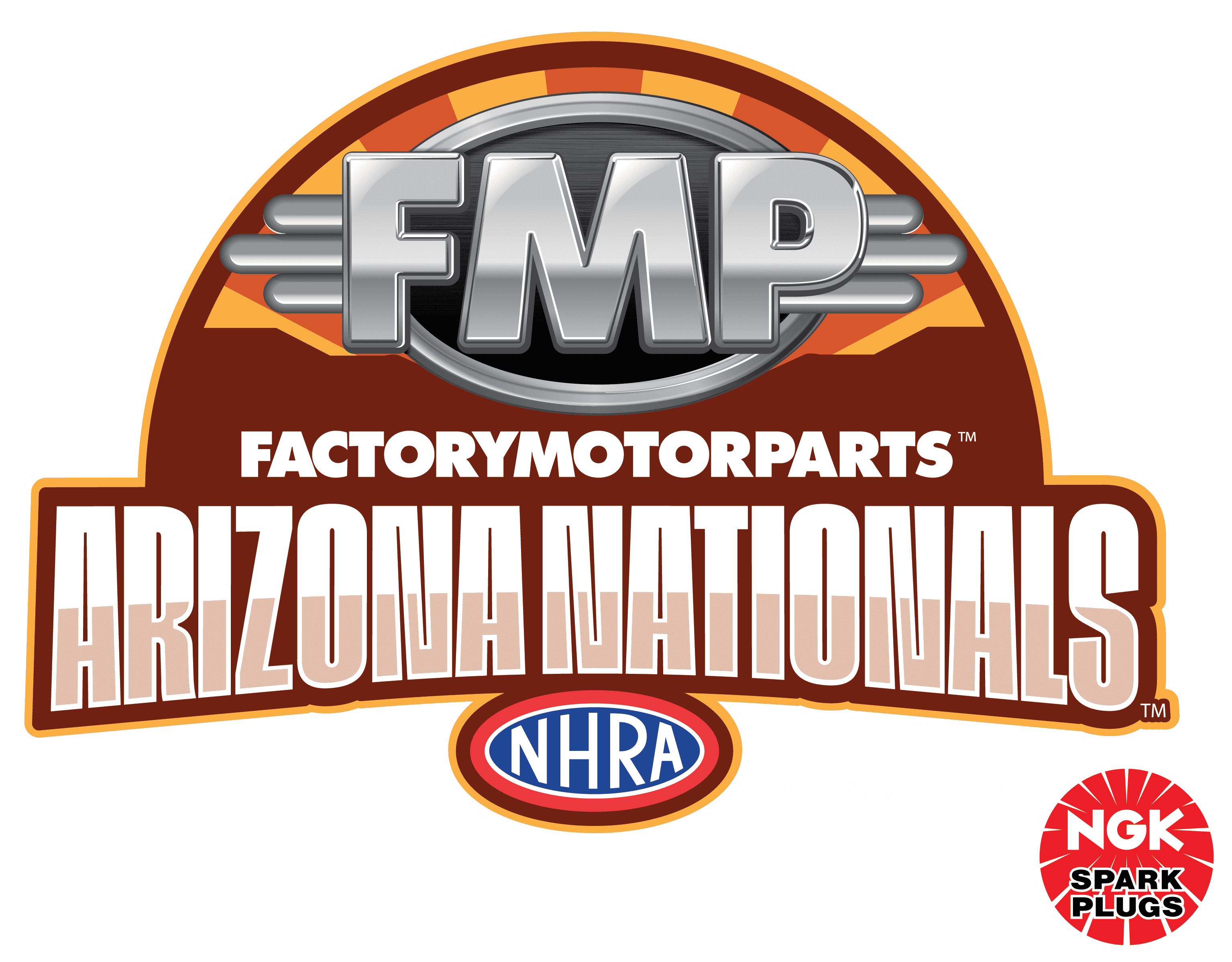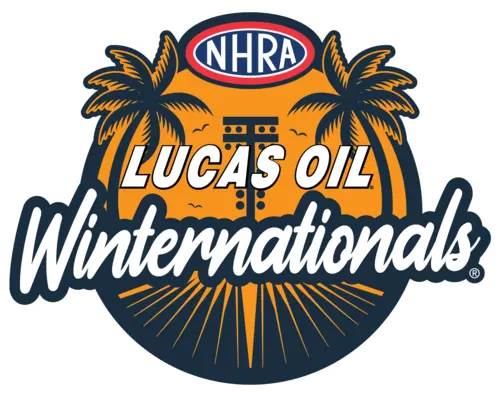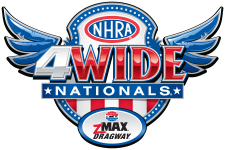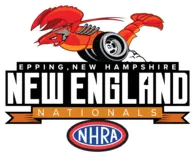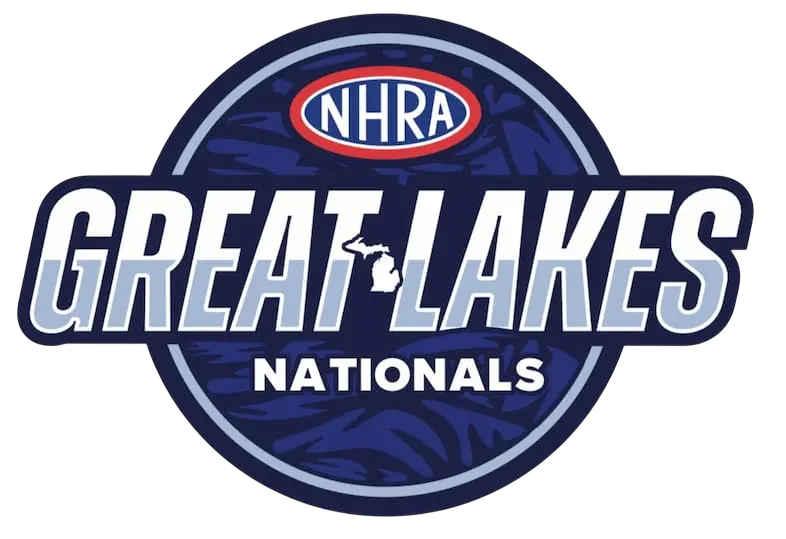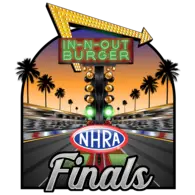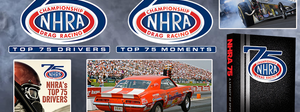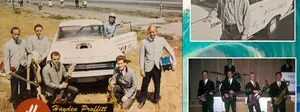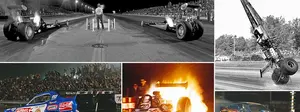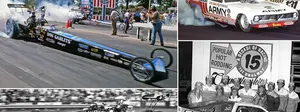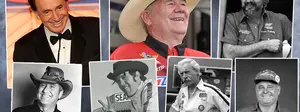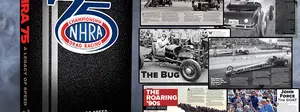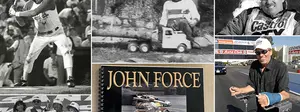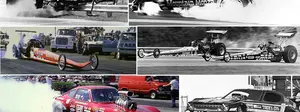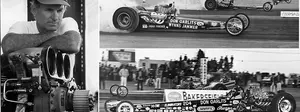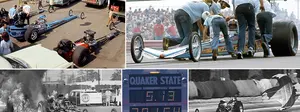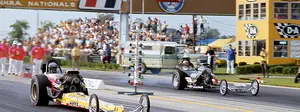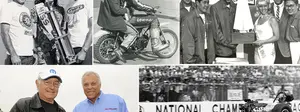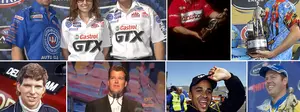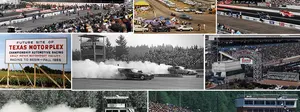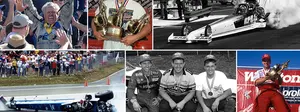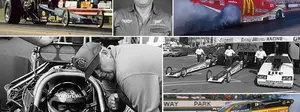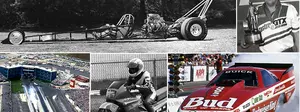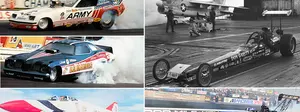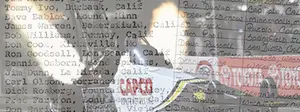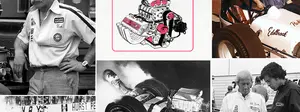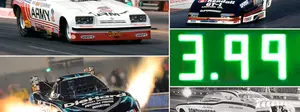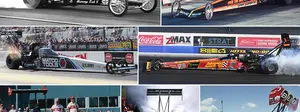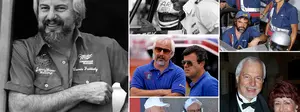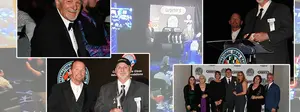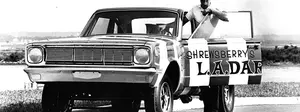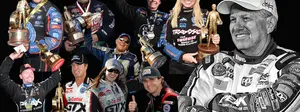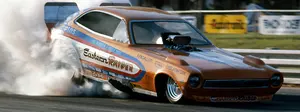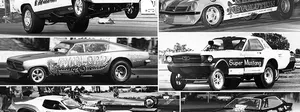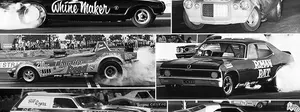Reliving some magical Indy moments
 |
I have to admit, the 60th anniversary Chevrolet Performance U.S. Nationals lived up to its billing for this reporter. While some people might have gone there to see the dramatic conclusion to the Mello Yello regular season and the histrionics that go with victory at the Big Go, I know there were people there who went primarily to see the special nostalgia showcases involving Don Garlits, Don Prudhomme, Tom McEwen, Shirley Muldowney, Jim Nicoll, Bob Glidden, Kenny Bernstein, and Tony Schumacher.
Me, I definitely went for both, and as exciting as the on-track racing was, I was really pumped up for the shows, and judging by the amazing (and humbling) number of warm welcomes I got from fellow members of the audience, the Insider Nation definitely went to watch, too.
There were six shows in all over three days – “Snake” and “Mongoose” talking about the 1978 Funny Car final; Prudhomme and Nicoll reliving the wild 1970 Top Fuel final; Muldowney talking about her Indy experiences; Bernstein’s 1983 Indy/Big Bud Shootout double; Garlits, Glidden, and Schumacher (“Indy’s Winningest Drivers”); and Garlits talking about his 1967 victory and subsequent starting-line shave – and I somehow was able to wedge in five of the six (missing only Bernstein) between my normal race responsibilities. NHRA handed out hard-card souvenirs to attendees at each show, and by weekend’s end, a lot of folks had six hanging from their lanyards. The shows were all well-attended, expertly emceed by Bob Frey, and played before respectful and rapt audiences.
Even though I’ve heard most of the stories either firsthand from the subject (and, in the case of “Snake”-“Mongoose,” many times in the last two years thanks to the movie), I still wanted to hear them again, straight from their mouths. We all know that a lot of these heroes are well into their 70s and beyond, and I don’t know how many more times they’ll tell them. It’s my understanding that at some point, a video or videos will be released from these shows, so I won’t go into great detail here. Here are some highlights from a trio of the shows.
 |
Prudhomme-Nicoll
I had interviewed Nicoll a couple of years ago for this column (Superman Lives) to share his story about the unforgettable 1970 final that ended with his car sawed in two by an exploding clutch and an overwrought Prudhomme contemplating quitting the sport on national TV, but this was the first time I got to meet Nicoll in person. As my story back then related, he earned his “Superman” nickname from Steve Gibbs after whipping four guys in a bar fight in Irwindale and not, as widely believed, for surviving a bunch of hairy accidents, but he still looks as if he could handle himself pretty well.
Nicoll seemed a bit surprised by the love showered on him (and the long line for autographs) while “Snake” was his usual cool self, leaning back in his chair casually answering questions and firing off quip after quip and remarking on Nicoll’s still-obvious badassness. (And we finally got the answer to how Nicoll pronounces his last name; the Wide World of Sports coverage pronounced it “nickel” while I’ve always known it as sounding like “Nicole”; it is “Nicole,” though he admits some of his friends call him “Nickel.” Glad we cleared that up!)
The show included the requisite footage of the final, and I’ve always thought that it looked as if Nicoll was ahead in the shot that showed them approaching the lights. The head-on angle of the explosion doesn’t make things clear, and, of course, both guys still believe they won it.
“People tell me he was ahead; he still thinks he was ahead,” said Prudhomme, jerking a thumb in Nicoll’s direction. “I got the footage and stop-framed it. I was half a spoke ahead.”
Although a crash like Nicoll’s today would certainly elicit raised eyebrows and hand-wringing, today’s safety equipment and car construction is so good, but it wasn’t always the case then. so Prudhomme's "I think I'm gonna quit" reaction to seeing Nicoll's crash was understandable. “In those days, if you saw someone crash and go over the guardrail, it was over; they’re dead,” said Prudhomme plainly. “We had lost a lot of guys in those cars; they were extremely dangerous. That’s one of the reasons I was so upset.”
Nicoll was running a Crowerglide – not many in Top Fuel were at the time; Prudhomme was running a traditional Schiefer pedal clutch – and Nicoll said it was an improperly heat-treated clutch stand that failed and led to the explosion.

Don Prudhomme, left, and Jim Nicoll; both still "super" after all these years
|
(Nicoll also received well-deserved credit from Frey for developing the dual-wall Funny Car headers that have saved the bacon of many a racer by keeping the hotter inner pipes shielded from oil. After a bad fire in Gainesville in 1973, Nicoll remembered back to his Navy days the sleeved hot-water pipes that ran next to his bunk and prevented sailors from getting burned.)
Both drove front- and rear-engine dragsters and Funny Cars, and Frey asked which they liked best. Even though they were, as noted by Prudhomme, dangerous, both voted for the slingshot.
“The front-engined dragster, without a doubt, was the most thrilling, most fun thing you could ever possibly have,” said Prudhomme. “The engine was right in front of you; you could see everything – the exhaust pipes, the blower. There were no starter motors or any of that jazz. The way you started them was push-start. A car or truck would be behind you, you’d get going, let the clutch out, feed a little fuel, shut it off, and hit the starter switch, and it would go bahhhh-bup-bup-bup and pull away and then start idling. It was a real turn-me-on-er. The girls fell out of the stands. It was pretty cool; I gotta tell you.”
(The magic of those words – hearing explained what was a simple and regular procedure performed over and over again – comes from the speaker, and to hear how the great “Snake” remembers it some 40 years ago, those are the reasons I go to these things.)
Also of note was the re-created 1970 Nicoll Top Fueler, built by Don Ross Fabricating of Dallas for Gage Prichard, which was on hand. Nicoll praised its accuracy. Displayed along with the exquisite dragster was the original roll cage, which had been found recently in the Dallas area and – get this – had been being used for the last 10 years as a child’s swing. Someone had found it behind the T-Bar chassis shop in Dallas, where Nicoll had dropped off the remains, and repurposed it. It was recently discovered and then purchased to use as a complimentary display piece.
 |
McEwen-Prudhomme
The whole story of the 1978 Indy Funny Car final has been told so many times – and obviously was the centerpiece around which the Snake & Mongoose movie was penned – but it’s still cool to hear the principals discuss it. The death of McEwen’s son, Jamie, after a brave battle with leukemia and his request that his dad go to the race and beat “the Snake” (even though Jamie and Prudhomme were real pals) and the fact that he not only won the biggest race of his career, but also finally beat Prudhomme to do it is just so storybook that if it had been only been dreamed up by Hollywood scriptwriters, we might all rolling our eyes, but it really happened.
So many things had to go right for McEwen to win the race. Prudhomme was quicker than everyone (and especially McEwen) there, running 5.97 and 6.04 in the first two rounds while McEwen had gone just 6.16 and 6.18. Then Ron Colson, driving for Roland Leong, crossed the centerline on a second-round bye run (after Bernstein broke), giving McEwen a bye in the semifinals, which he used as a test run to experiment with a new tune-up that he knew he’d need to beat “the Snake” in the final.
“We were always looking for some kind of magic like [Prudhomme] always seemed to have in his car,” he explained. “We had to try something.” With a free pass, they switched from a 4.10 gear to a 4.30 hoping to drop the e.t. five- or six-hundredths. The time they tried it previously, the car had smoked the tires, but this time, it hooked great on the launch – in the left lane where he knew that right-lane-favoring Prudhomme would put him -- and he shut it off to a 7.12 coasting pass.
Prudhomme, meanwhile, ran a 6.05 on his semifinal pass to defeat "Lil’ John" Lombardo, and no one expected him to lose the final. His car, the Army Arrow, was that good and that consistent all weekend, so when he hazed the tires 100 feet into the run and McEwen went sailing by to win, 6.05 to 6.33, the place went nuts.
“I thought we were going to win it,” Prudhomme admitted. “We had the best lane; we had it all. The Tree came down, and I thought my timing was good, but it just smoked the tires, and to this day, I don’t know why it did. I really don’t. I was amazed. Shocked. It was just meant to be. I can honestly say that’s the only time I’ve lost a race that I was OK with it afterwards.”
“He hazed the tires, and that was the little bit of help I needed,” said McEwen. “It was very emotional. I was sad; he was sad, but I think he was sad because he lost,” he added with a laugh.

Tom McEwen. left, and Prudhomme; still pals, still feuding
|
Frey then bravely asked the question that some may have been thinking: Did Prudhomme let McEwen win that final?
“Hell no,” Prudhomme said emphatically, then magnanimously added, “He won it fair and square, and, I’ll tell you, even if I hadn’t smoked the tires, I don’t know if we would have beaten him anyhow. He made probably the best run of his career.”
Prudhomme had an interesting analogy about his relationship with McEwen and the relatively short (considering the span of their careers) Wildlife Racing partnership and the Mattel deal that made “Snake and Mongoose” a household phrase for millions of families.
“I won 40-something [49] national events [with NHRA] as a driver and a total of maybe 120 national events [I assume this is referring to his AHRA, IHRA, and NHRA-owner wins] and set all kinds of records and did everything there was to do, but the thing I’m most known for is the three years we were together,” he said. “It’s kind of like a band having a really hit song and being known [mostly] for that.”
That comment led to some spiritedly funny back-and-forth, with Prudhomme talking about all the years that his winning “carried” the sponsorship and McEwen taking credit for getting the Mattel deal [“I was the leader of the band!”], that ended with Prudhomme acknowledging that they blamed one another when the Mattel deal ended, Prudhomme blaming McEwen for not winning more races and McEwen blaming the race-focused Prudhomme for not making more personal appearances.
 |
Garlits, 1967
Truly the highlight of the six shows was Garlits talking about his experiences at the 1967 event. It’s a story well-known and told by now, of how Garlits was in one of the worst droughts of his career, had failed to qualify at either the Winternationals or Springnationals earlier in the year, and hadn’t yet run in the sixes as many of his peers had. Sometime that summer, he vowed not to shave until he ran in the sixes, which he did in winning the final round against James Warren, then towed back to the starting line, where he shaved his beard (at least part of it). Here’s how Garlits tells the story years later.
Garlits had been struggling because his current car was worn out. The car he was running was Swamp Rat VIII, which was rebranded as Swamp Rat X after it was fronthalved. He’d moved from Florida to Detroit to be closer to the manufacturers and the racing action and desperately needed a new car. Even before qualifying was over at the Springnationals, Garlits realized he needed to build a new car and started packing up.
“We started out the gate, and Tom McEwen and Connie Kalitta came over and said, ‘Where are you going? You’re not qualified.’ I told them I was going home to build a new car. McEwen had a big laugh and made some remark, and Kalitta said, ‘Don’t upset him; there’s no telling what he might do.’ Kalitta knew me; we’ve been friends since we were 17 years old. On the way home, I drew up the plans and the schedule. We’d work 20 hours a day, sleep four hours a night, my wife is going to cook four meals a day at even intervals and bring them to the shop. We had a race in Muncie, Ind., with the Hawaiian the next Saturday, and I wasn’t one to back out of a race. We got it done, but we never had a chance to shave, which is how the beards got started.”
Even with the new car, Swamp Rat XI (which was on hand this year), Garlits was in deep with the tough field at the 1967 Nationals.
“I was definitely the underdog; I didn’t have much of a chance,” he admitted. “I was testing Goodyear tires, and they just weren’t as good yet as the M&Hs. I qualified 23rd and told Goodyear I couldn’t do anything more with their tires, so they told me. ‘Go over and get some M&Hs; we’ll buy them for you.’ I went over Monday morning to Marvin’s [Rifchin's] truck, and he told me, ‘I don’t have any left, but James Warren just bought a set; he may sell you his take-offs.’ I went over to see James, and he said, ‘Just take the new ones; you’ll only be in for a couple of rounds, and they need a couple of break-in runs anyway.’
 |
 |
“With every round I went, I would go over and ask James if he wanted his new tires back, and he’d say, 'No, I’m running 6.80s and 6.90s; I’m fine,’ because I was still in the sevens because the Goodyears had given me so much trouble, and I was afraid to stand on it too much. I went over before the final round and said, ‘James, this is the final, this is for the money, do you want your tires back?’ He said, ‘Don, I just ran 6.85 and you ran 7.01; I think I have the best tires.’ I just said, ‘OK,’ and we ran, and, of course, I ran 6.77. The tires were really good.”
Garlits got standing ovations both before and after the show, the only legend to be received that way. Yes, he might not still race there anymore and Schumacher now has more Top Fuel wins there, but Indy still belongs to “Big Daddy.”
The show didn’t end there for Garlits; an hour or so later, he pulled Swamp Rat XI into the winner’s circle beneath Parks Tower, and, re-creating that great 1967 moment, shaved the beard he had started growing this summer in anticipation of the show. It was another amazing moment, and if you closed your eyes just enough, you could image that it was, once again, 1967. Ah, the magic of Indy.
As I mentioned, Frey did an outstanding job of running the show, asking interesting questions and milking extra details from the participants, but he might not have had the best question. Fans got to ask questions after each show, and at the conclusion of “Indy’s Most Winningest” – in which Garlits had talked about his dream of running 200 mph in his battery-powered dragster – it was Schumacher who posited the following to Garlits: “Say you pushed the pedal down on that electric car and get to the finish, and like the DeLorean, you go back to the future. What year do you want to land in?”
Garlits had no problem providing an answer that I’m sure many of you reading would agree with.
“1975. I think that was the best year for drag racing; the cars ran 250 mph and ran 5.70s with nice side-by-side races. There was no taking the cars apart between rounds; we could return in probably 25 minutes. And anyone who wanted to do it could do it; it didn’t take millions of dollars. If it was still like that, I’d be racing again.”

Yours truly, meeting Raymond Godman and Preston Davis; an honor.
|
Yes, those were the days, and it was great to revisit them in Indy with these shows. There are going to be more of these types of presentations this year at the World Finals, which will be celebrating its 50th anniversary. The National Dragster staff also is finishing up our history of the World Finals book (similar to the great Winternationals book we made a few years ago), complete with year-by-year reaps, photos, and interesting features. You’ll be able to buy it at the event or online. I’ll have more details later.
As I mentioned earlier, it was great to meet and talk with so many of the readers of this column. It’s truly flattering that I couldn’t go more than an hour or two walking around the hallowed grounds without someone stopping me to talk about the column. It was especially thrilling to sit down and talk in person to Raymond Godman and Preston Davis, whom I’d interviewed two weeks ago for a story on their legendary Tennessee Bo-Weevil entries. They were as warm and gracious in person as they had been on the phone, and it was my honor and privilege to shake their hands for all they’ve done for the sport.
As great as the U.S. Nationals was this year, it was also a bit sad as we learned just before the race of the passing of John Farkonas, one third of the famed Farkonas-Coil-Minick Chi-Town Hustler team, and during the event of the loss of Bob Brooks, a well-known connecting-rod and fuel-clutch guru. I’ll share their stories, and the thoughts of those who knew them, next Friday.
Thank for stopping by, and, as always, thanks for the support. love, and contributions.



